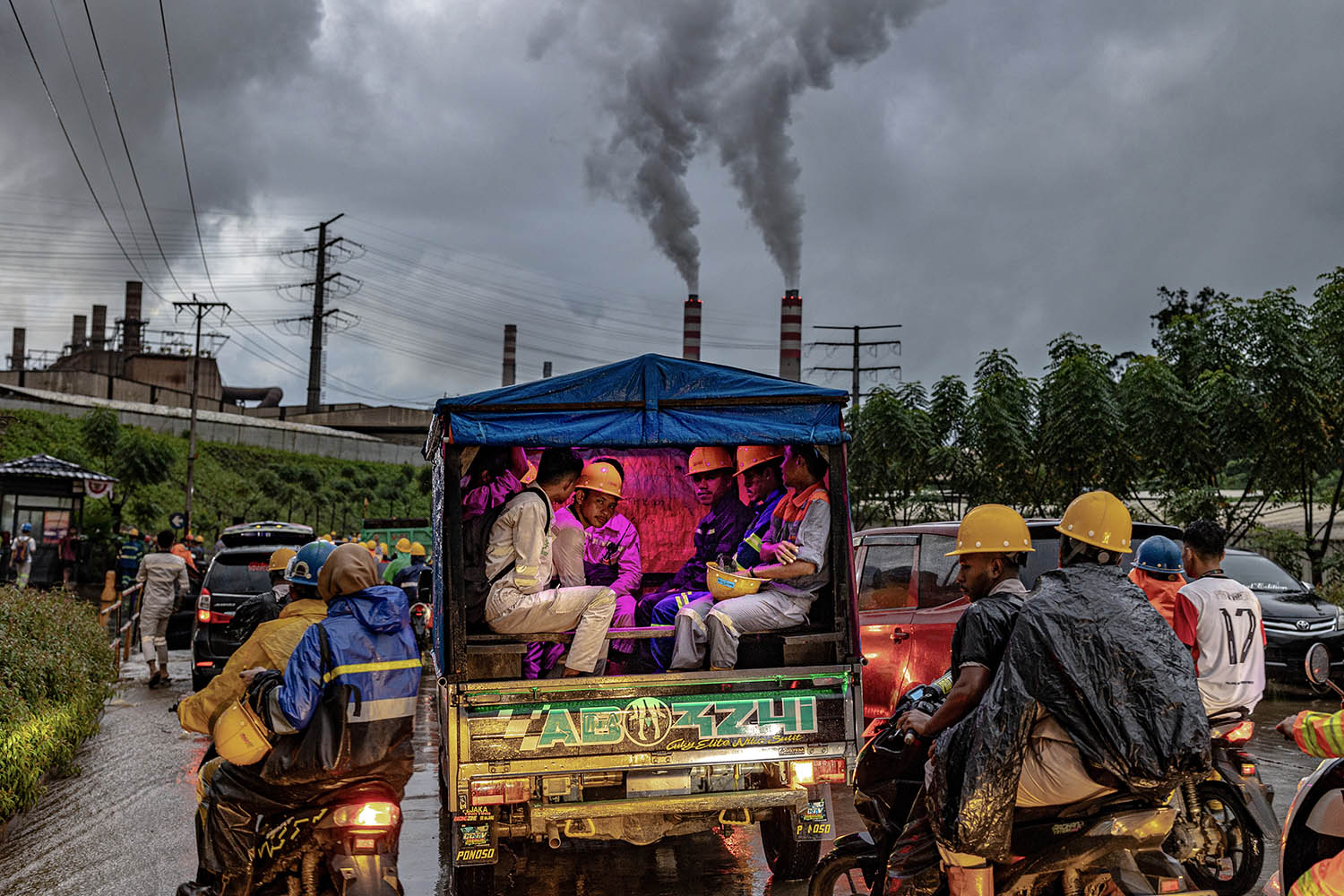Photographs by Mas Agung Wilis / Panos Pictures
The world has plundered the riches of Halmahera for centuries. The Portuguese, English and Dutch fought for and colonised the spice islands (Halmahera is the largest) for their nutmeg, pepper, cloves and mace.
Global tastes have changed, and Halmahera’s new curse is nickel. The metal was once so worthless that German prospectors thought the devil had put it in the ground as a trick, and called it Old Nick. Now it is a vital ingredient of stainless steel and rechargeable batteries, and the Indonesian government has tried to cash in.
Weda Bay accounts for 17% of global nickel production, and the metal makes up 9% of Indonesian exports, amounting to $30bn (£22bn) a year. The government has banned export of nickel ore to stimulate the creation of a local refining industry.
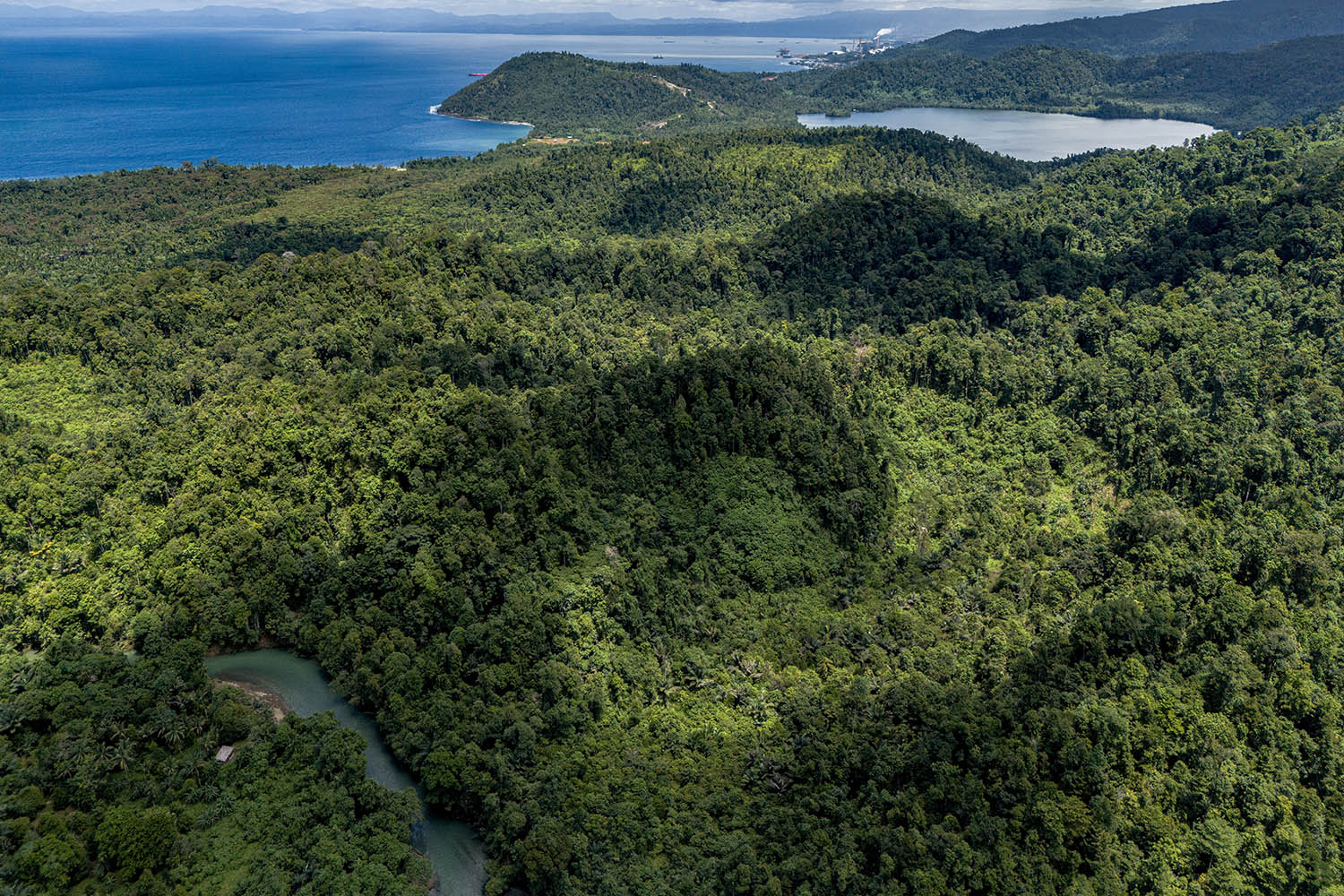
Pristine forests on Halmahera, the largest spice island in Indonesia, where nickel is now being extracted
The villagers here used to fish and farm cloves, cocoa and coconut, but the mining industry has swept aside swathes of rainforest to extract ore – 5,331 hectares, according to Climate Rights International. The villagers are now affected by flooding, air pollution from the ore smelters and industrial effluent in the ocean.
Has it been worth it? Nickel’s price has plunged in the past few months and workers are being laid off. Donald Trump has also threatened tariffs against the Brics nations; Indonesia joined in January, which include Indonesia. You can’t stop progress: last month, work began on a $5.9bn electric vehicle battery plant. But Halmahera knows that progress has a price.
Photographs by Mas Agung Wilis/Panos Pictures
Newsletters
Choose the newsletters you want to receive
View more
For information about how The Observer protects your data, read our Privacy Policy
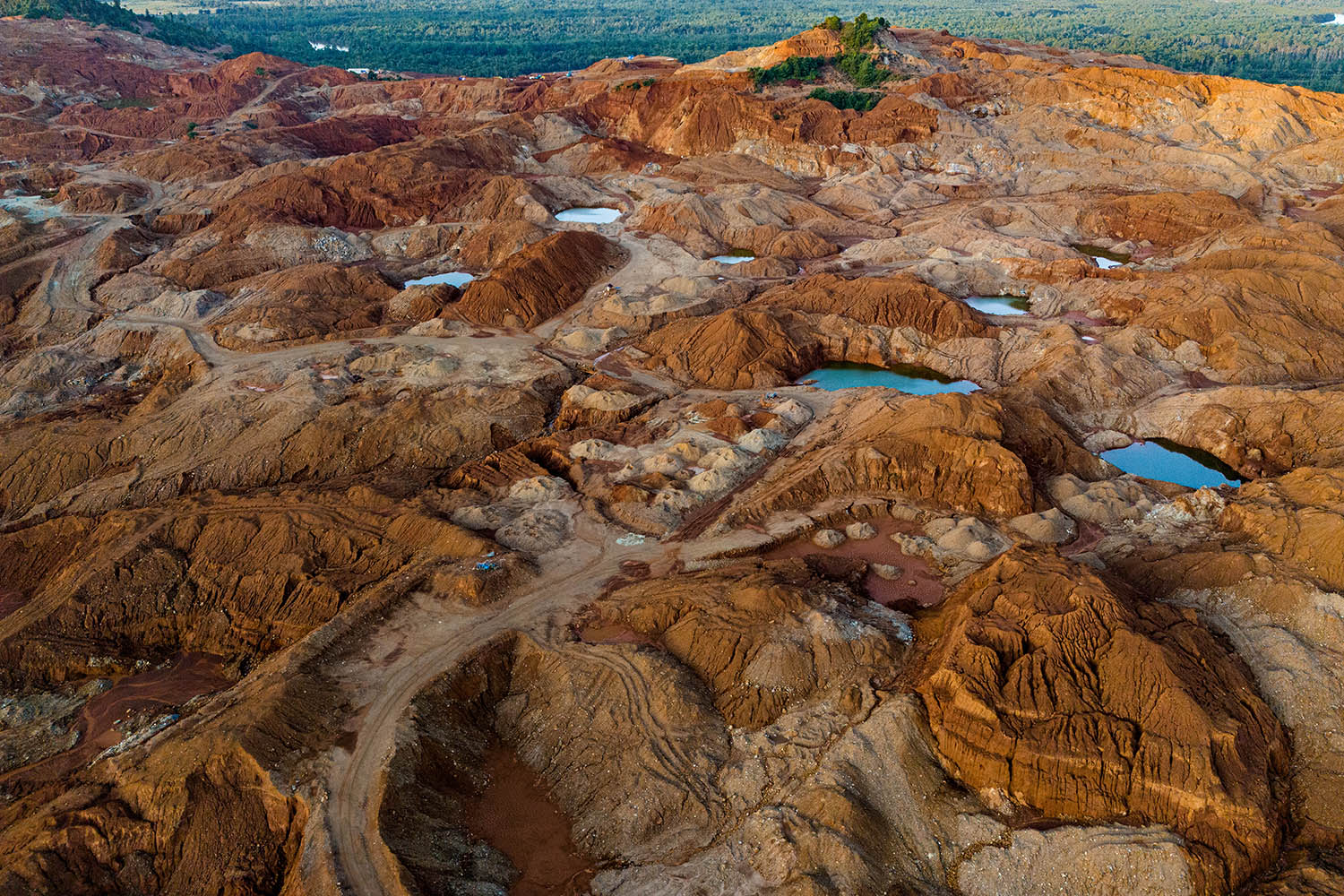
Land deforested for nickel mining in North Konawe on the island of Sulawesi
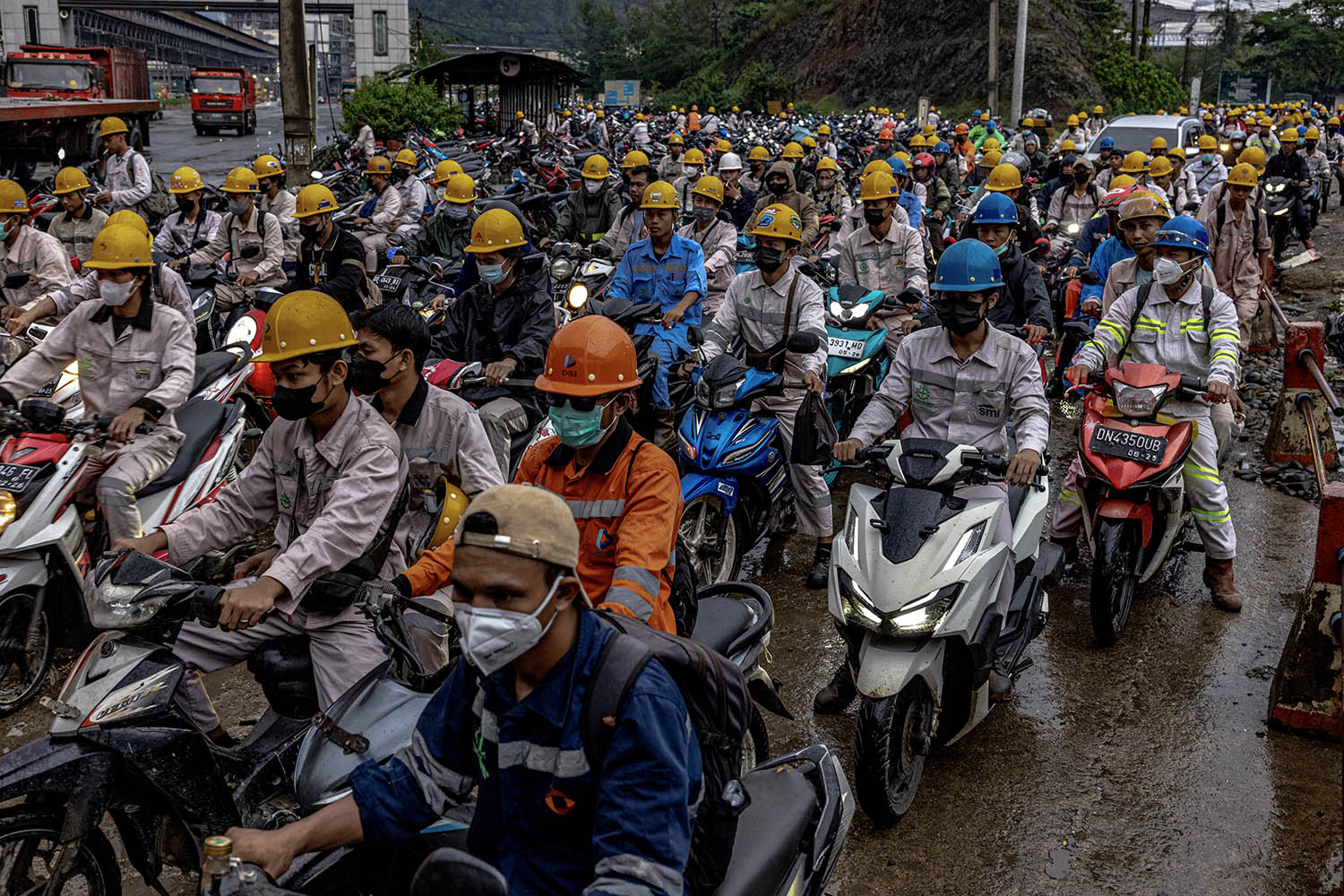
Some of the 86,000 workers employed at the mine arrive for a shift at the industrial park on Sulawesi
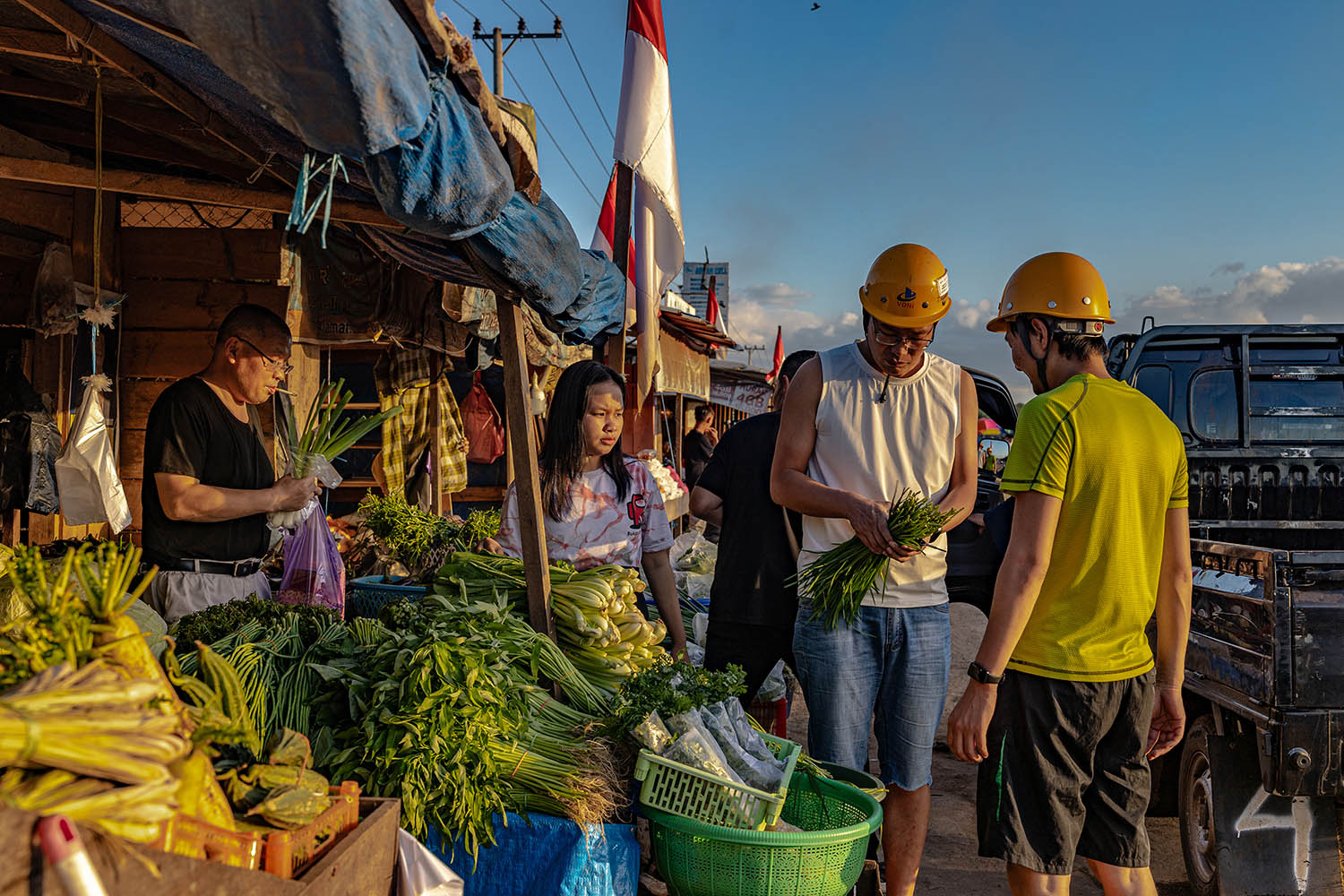
Chinese immigrant workers at a market stall near the nickel factory on Sulawesi where they work
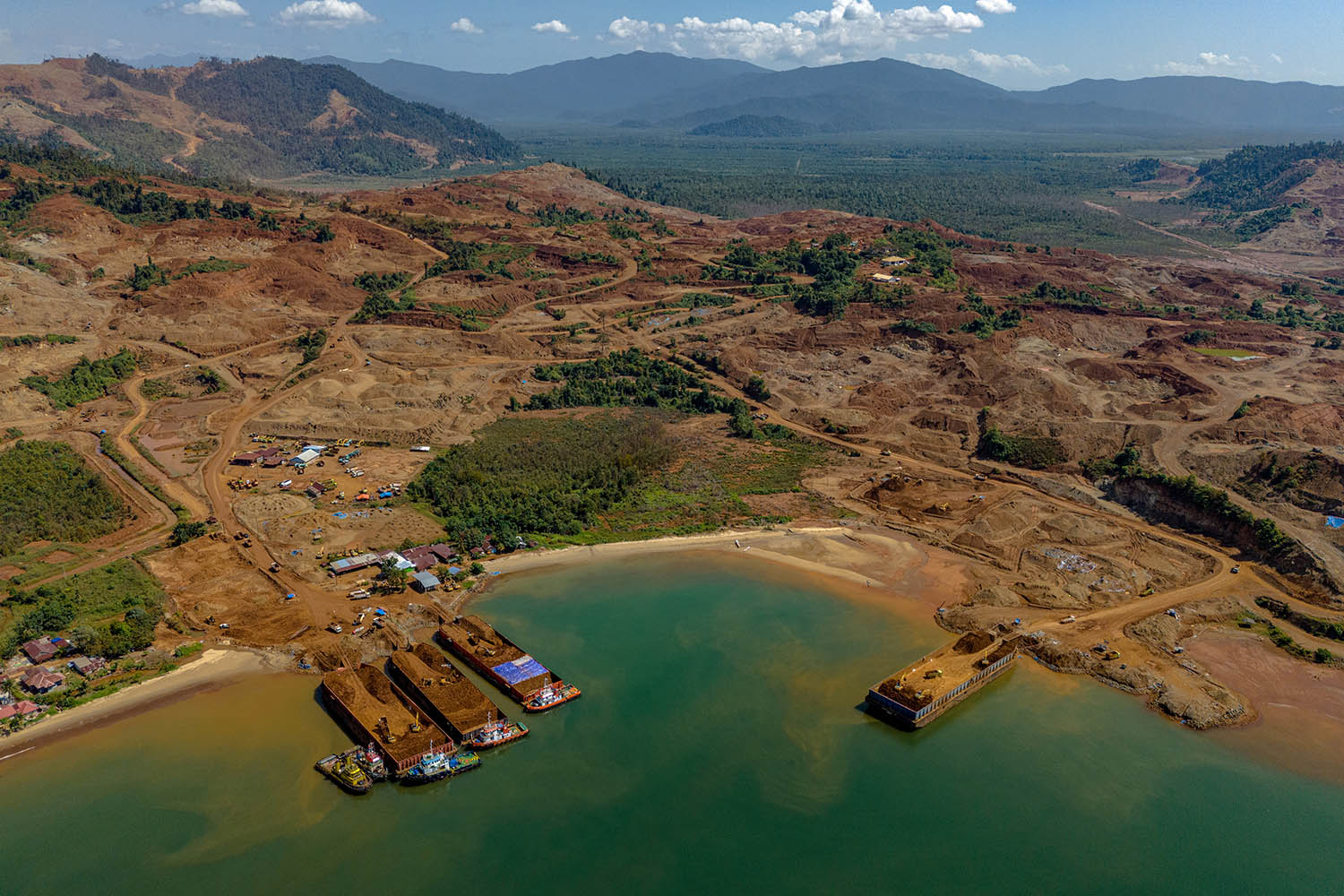
Nickel ore being loaded on to barges to be towed down the coast to the nickel-processing plants on Sulawesi
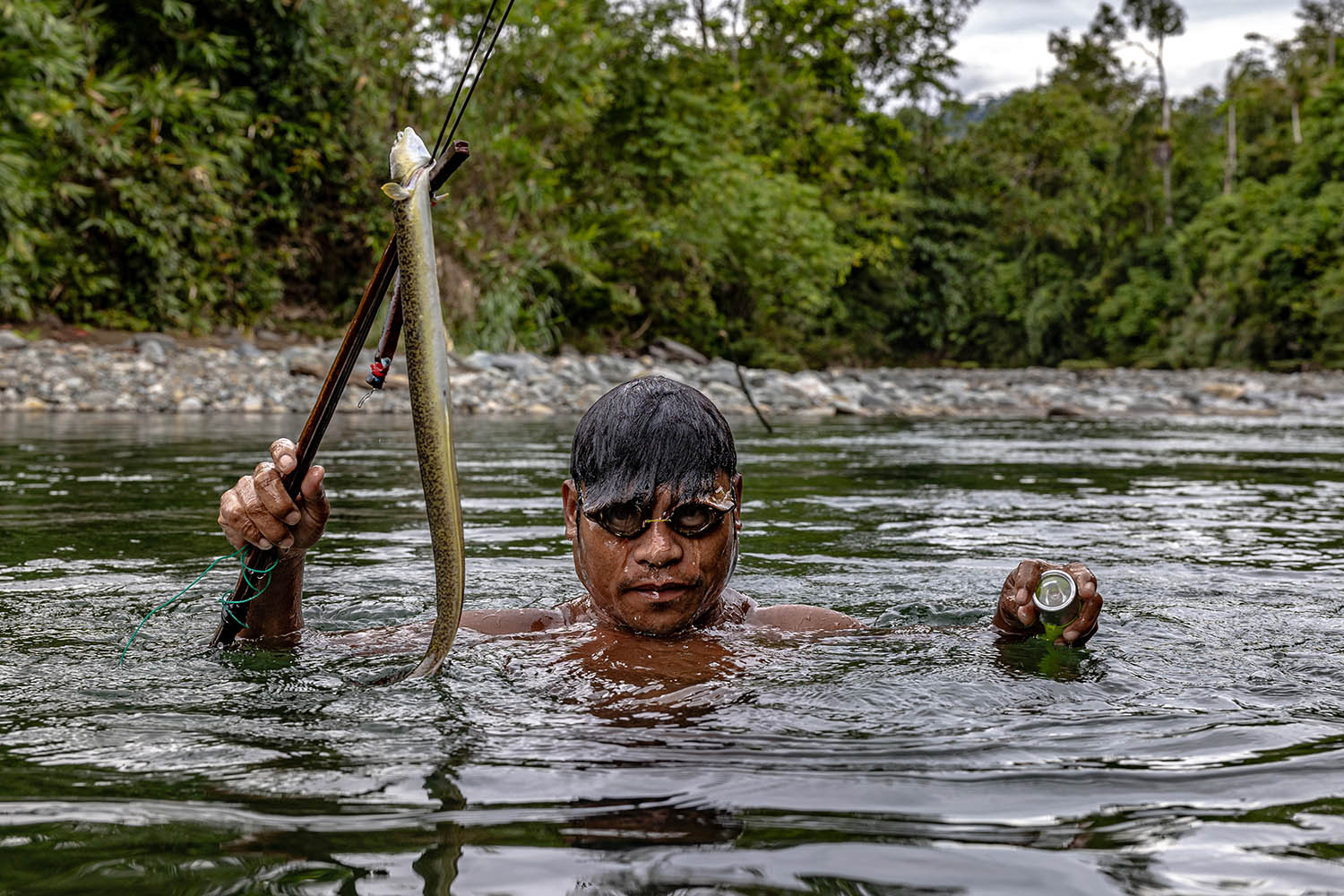
Daniel Gereja of the O Hongana Manyawa ethnic group holds an eel he caught with a harpoon in the Dodaga river on Halmahera
